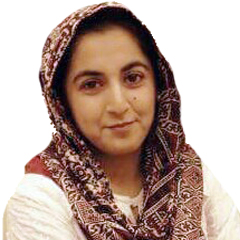Human rights violations continue to be the core issue in sustainable development at global, national and local level. Gender discrimination, inaccessible education system, forced and early marriages and gross economic marginalization of women are some of the fundamental human rights violations that pose serious threat to inclusion, growth and equal access to opportunities. Gender Equality and Reduced Inequalities are two important Sustainable Development Goals being at number 5 and number 10 respectively that are being worked upon with massive rigour and impact, yet, women across the globe are struggling for equality – some in terms of pay, some in terms of power, some in terms of independence and some to just live! Even in 2020, the women and transgender population suffers from persistent violations of basic human rights because of binary approach in gender and an insensitive legal, social and political framework.
Both government and non-government bodies are trying to build an inclusive discourse at policy level but the attempts seem to be shallow and under-researched. It is high time to build a human rights discourse for economic empowerment of women by floating thought provoking debates among masses
Women constitute approximately half of the world population which is yet to be brought into economic mainstream to contribute towards growth and development. According to an IMF report, gender equality in the Asia Pacific region may lead to around 4.5 trillion US dollar growth in GDP by 2025. Therefore, promoting gender equality and mainstreaming women on economic, legal and political fronts is a serious concern to combat economic crisis.
Both government and non-government bodies are trying to build an inclusive discourse at policy level but the attempts seem to be shallow and under-researched.It is high time to build a human rights discourse for economic empowerment of women by floating thought provoking debates among masses. Soft media such as art, theatre and films etcetera are arguably the most impactful modes to influence public particularly in Pakistan, so The Why Film Festival 2020 is being launched in Lahore as an attempt to stir human rights debates in masses by screening documentaries. This Festival is being organized by The Why Foundation, Lahore Education and Research Network (LEARN)and Olomopolo Media on 26th January 2020 to screen films on women and related human rights.
The Why Foundation is a charitable organization that supports sustainable development by securing free access to reliable information for millions of people around the world. It also works to promote human rights through producing documentaries on human rights issues across the world.In Pakistan, the documentaries are being launched by LEARN at Olomopolo Media through The Why Film Festival 2020. The festival constitutes of screening short films spanning over two to three minutes that are created by The Why Foundation. The screening will be followed by thought provoking discussion sessions by experts working in the targeted areassuch as girls’ education, early forced marriages, access to sanitation and women’s economic empowerment.
We must understand that change cannot come overnight with magical changes and developments in law. In this age and time, it is important to propagate learning through unconventional and soft modes instead of striving for change in law books and state policies alone. It happens with evolution in public behaviour which in turn reforms with impactful social measures instead of mere legislative evolution. Here, I do not discourage legislative evolution, but stress upon supplementing legislative evolution with social reforms through non-state actors. Admittedly, the state machinery is inadequate for catering the huge population of the country in terms of awareness and learning. Resultantly, the responsibility trickles down to the limited conscious class of people to work for change and infuse human rights discourse at every possible level. The Why Film Festival 2020 is one such move in the right direction for discussing Human Rights through Films.
The writer is lawyer, writer and Human Rights Activist
